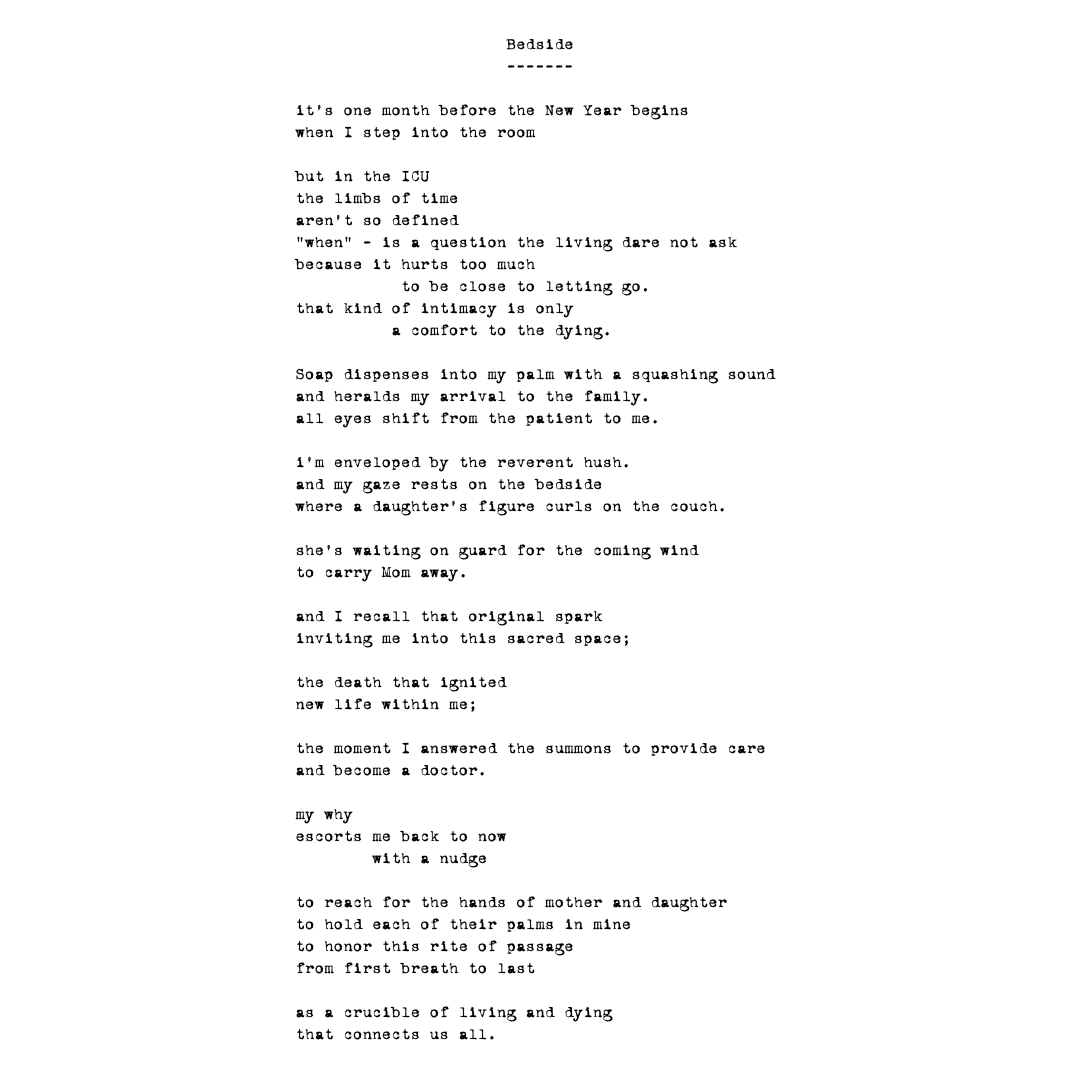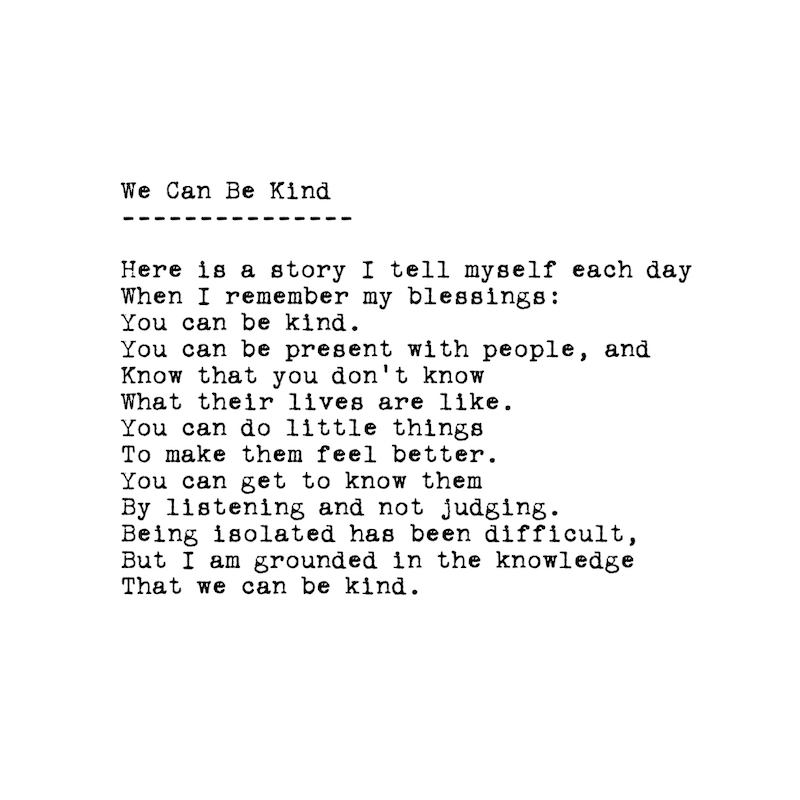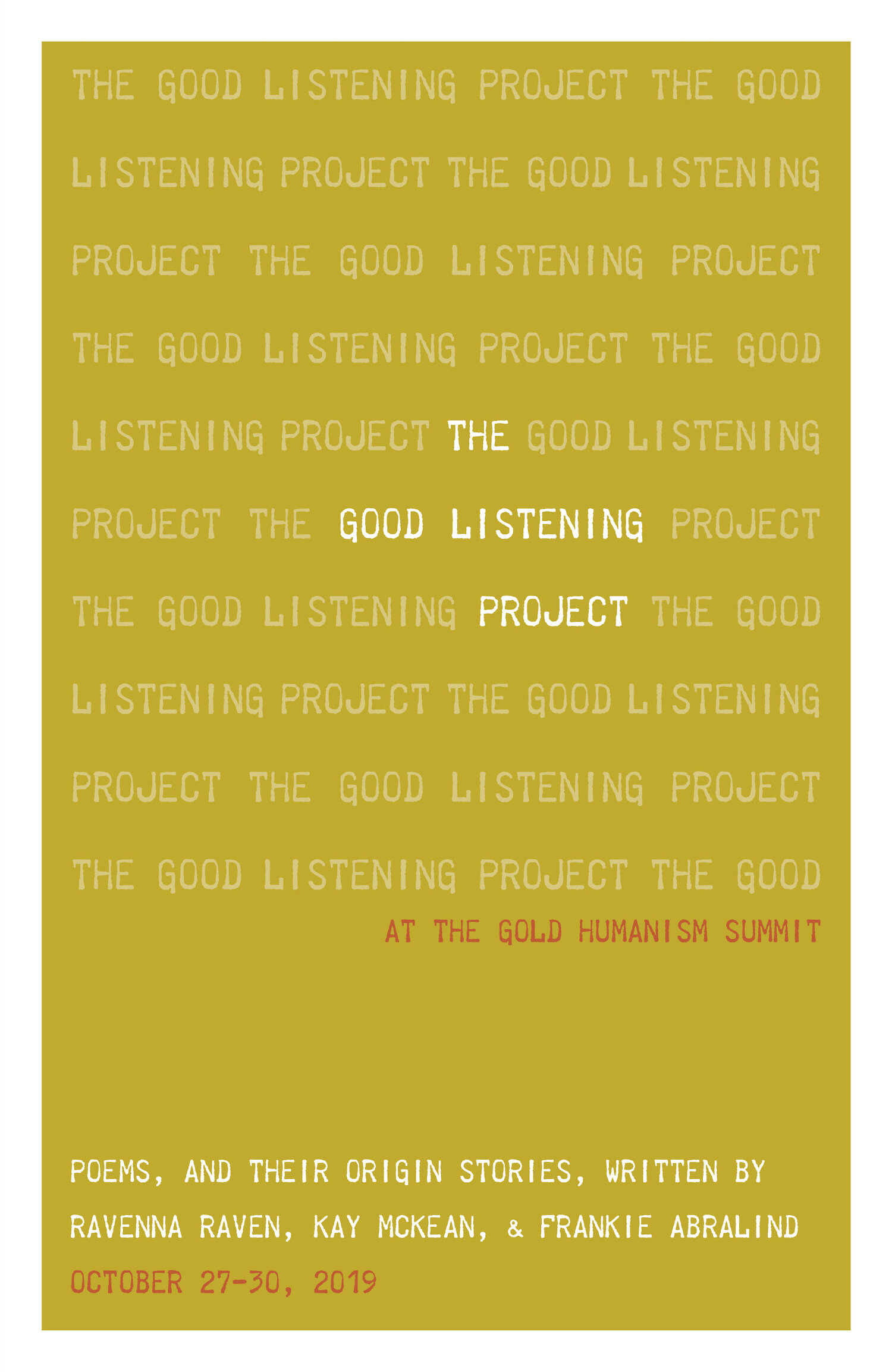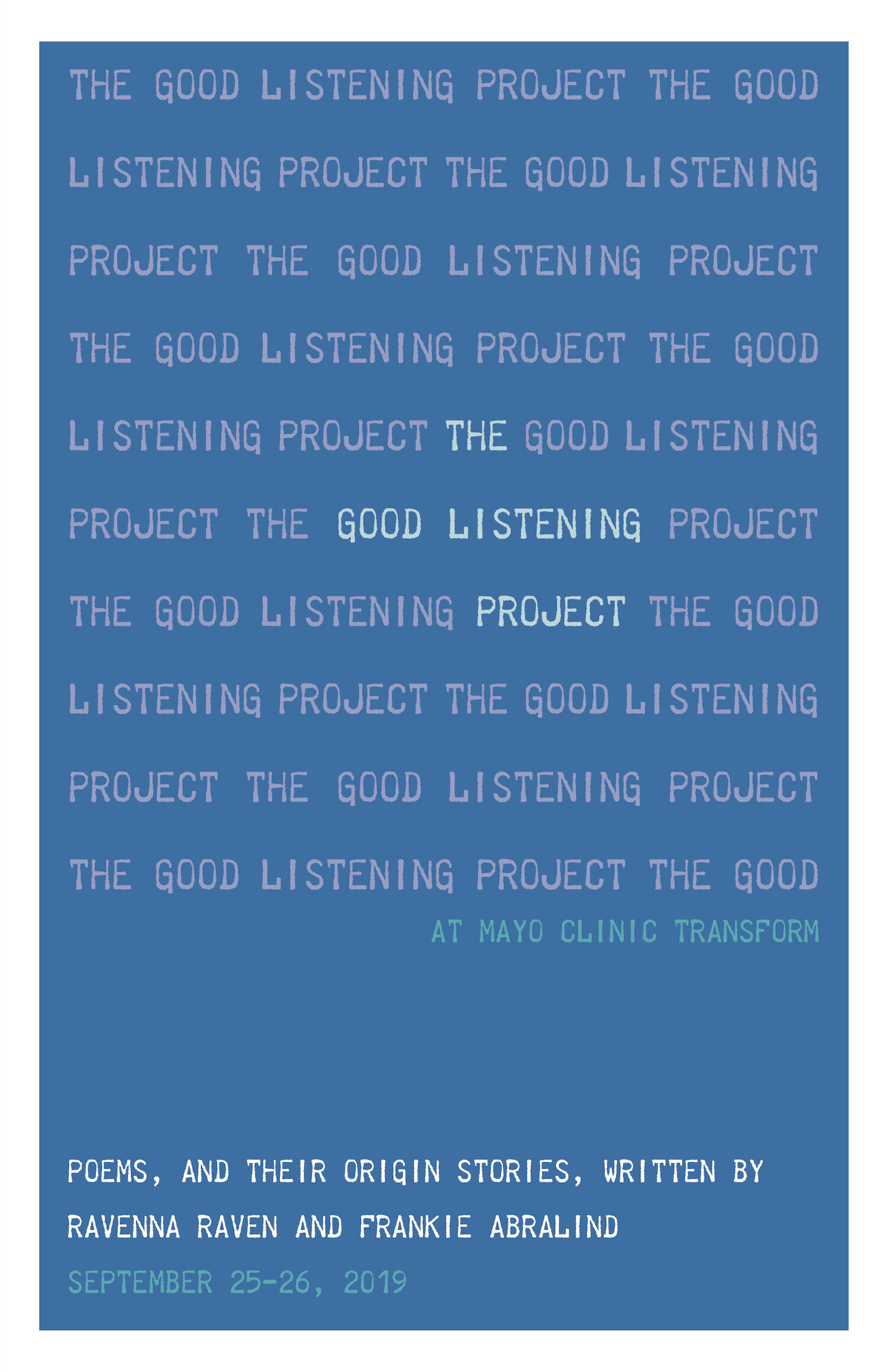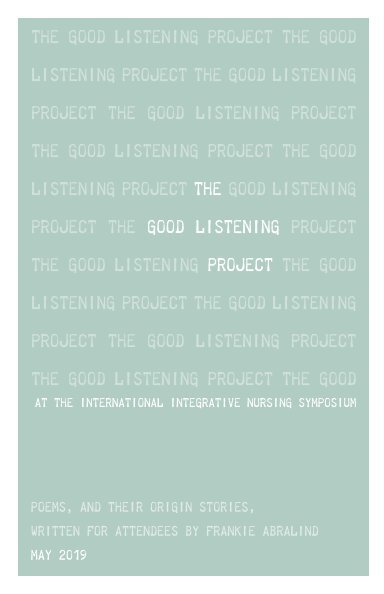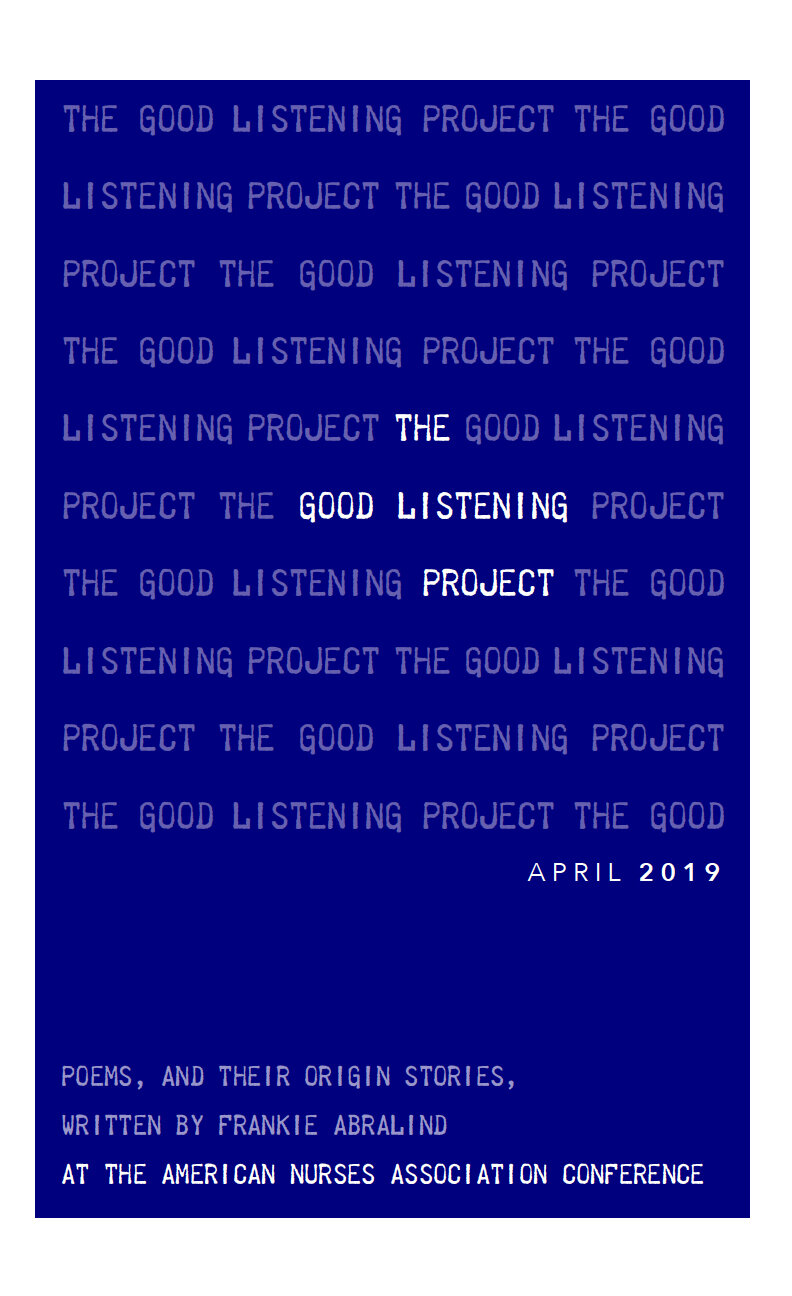“What You Will Call Me,” a poem by Yvette Perry
Listen to this poem here:
What does it mean for people living with Sickle Cell Disease to be seen, heard, and understood? For this person, it meant finding – and using – her voice to advocate for herself and for others.
During our conversation she shared the huge difference between the way she was treated as a pediatric patient and the way she was treated in healthcare settings seeking care as an adult. Following one such negative experience in which she nearly died because of substandard care, she determined to no longer remain silent.
With this poem I aimed to capture her growing sense of empowerment, even in the face of the disrespect and stigma from others.
Yvette Perry, Listener Poet
Listener Poet Session
November 2024
What You Will Call Me
By Yvette Perry, Listener Poet
Drug seeker! Sickler!
Pain faker; bed taker
I am a Human Being
I am who you swore an
oath to care for with compassion—not
a stray dog to degrade with your words, and
step over in the street
Drug seeker sickler
Pain faker; bed taker
Hospital hopper doctor shopper
I am a Patient—the same person
you saw as a pediatric patient
who you listened to and tried to
turn each hospital stay into Christmas day
Turning 18 didn’t change what I need from you
Arriving at your door by myself doesn’t mean I must content myself with your miserable scraps
Drug seeker sickler
Pain faker, bed taker
Hospital hopper doctor shopper
Early death hopeless caser—
emergency room taking up spacer
I am a Storyteller
who’ll keep memories alive
of my young brother who died
and of the stranger who live-streamed you
laughing at her pain then later passed away
in her home after Security kicked her out your ER
Drug seeker sickler
pain faker bed taker
hospital hopper doctor shopper
Early death hopeless caser—ER taking up spacer
Survivor’s guilt hoarder family discorder
I am a Mother, a Sister, a Daughter,
a Friend and a Partner
I am a Child of God
I will be here for a long time
for those who depend on me, love me
I will heal the bonds I can, and pray for the rest
Charge nurse hustler! Attention guzzler!
—I am an Advocate
I shouldn’t have to impress you
with my accomplishments before you to treat me
with the care that everyone deserves
I’m creating community
and seizing custody of hope and
helping others take back their voices as I
have taken back mine
Broken blood blocker SICKLED CELL SQUAWKER!
drugseekersickler sickler sickler
faker…hop doc hospital up…hopeless…take…ER er er er…
I am a Woman and a Warrior
living with and
not perishing from this disease
I take spa days and make art to
manage the stress
My supapower is my determination
to thrive, not just survive
You know nothing about me,
and no, you won’t define me
But if nothing else, you
will call me
by my
Name
Her childhood was infused with Hawaiian-Polynesian music and dance, taught to her father by his mother. Today, this poemee is the Director of the PhD program in Biomedical and Translational Sciences. She has used HeLa cells for decades. Her life’s work is to connect the unbelievable discoveries of molecularly focused pre-clinical research directly to the patient experience of treatment.
She is a single mother born to a single mother and had to grow up fast. She is juggling a sticky work situation, her own anxiety and depression, and being away from home and her kids.
Instead of the usual Listener Poet format – listening to one person’s story and responding with a framing narrative and custom poem – I was invited to create a group poem for forty participants at the Arts in Healing luncheon, hosted by the Inova Health Foundation in partnership with the board.
What does it mean for people living with Sickle Cell Disease to be seen, heard, and understood? For this person, it meant finding – and using – her voice to advocate for herself and for others.
“I’ve experienced a lot of big losses,” she said, referencing the passing of a grandfather and two uncles who did not survive their cancer diagnoses. “There were others too.”
Professionally, Lacks’ story represents for her the need to critically examine our research infrastructure generally. “We need to pay more attention to the sustainability of research,” she explained. “Private companies benefit from publicly-funded research without a requirement to give back to ensure the viability of future research.”
“The fact of my life is a miracle,” she told me. Living with multiple chronic illnesses, this patient spoke to me of her journey with alopecia. Of how, in witnessing her body transformed by the condition, she continues to move at once through grief and reclamation.
“I can’t see a future outside of our relationship,” she tells me, “but I also can’t see a future outside of residency.”
“I always believe, no matter what the doctor says, that I will be cured,” she says as her sister sits next to her.
“I wonder if these medical professionals, in caring for people who face such insurmountable odds, walk around all the time carrying this weight I’m hauling now.”
He had been trying to cope with the grief ever since and was on a quest for soul-searching and meaning-making.
She spoke about the ways this traumatic event shaped who she is today: a person with an “unshakeable peace” born of deep faith,
She wanted to help people feel comfortable and transform the shame around colon issues. "I want to talk about things that matter, the things people don't want to discuss.
When we met, she was coming off a stretch of nine 14-hour shifts. She was tired but in good spirits.
She reflected on how her resilience was born from moments of shared mirth amid life's trying chapters.
“Life is complex and dirty, but digging in is important to me,” she said. “Maybe if more of us understood history, we could understand each other better.”
We are expected to research, contribute to scholarship, earn grants – all on our own time.
We are expected to research, contribute to scholarship, earn grants – all on our own time.
Every day, I try to see through the patient lens, and I ask: what can we do to change this broken system?
This past year, he was a right defensive tackle on his school football team, but for the past two and a half years, he’d been caring for his dad, who had cancer.
She was very proud of her daughter and has hopes for “a bright future that’s as pain free as possible”
“I’m trying to focus on doing little things to make people feel better during everything that’s going on in the world,” she told me.
“It’s hard to see others struggle,” she said. “How can I help with their struggle without struggling myself?”
"I'd tell her it's OK to be loud...it's OK to challenge and to bring all of you into these spaces where no one looks like you..."
